The sun is baking wild oregano and thyme and the sharp winds whip its smell across the mountains. Apricots, sticky from their own juice, rolling around in a plastic bag, fresh off their tree and delivered to my door. Golden tan lines are dotted with red bumps from mystery bites and fade into a blur of different swimsuits worn, proof of time on the islands.
I’m on a plane en route to Paris, leaving Greece after a month. Three weeks were spent on three islands, ending with one week in Athens. It was my first time in Greece, and while a month's visit can’t provide the whole picture, here’s what I observed during my time there.
Temperature
Unlike the rest of Europe, ice is offered often and with abandon. The Greeks like cold things cold and hot things hot, and while many would say the national drink is ouzo, I’d argue it’s an espresso freddo.
Coffee
Everyone, everywhere is drinking freddos in the many cafes that are littered across this country. The closest thing I’ve had to a freddo is a shakerato in Italy, though there are subtle differences. Shakeratos are espressos shaken with ice in a martini shaker, where the ice is strained out before it’s served. The act of shaking produces an airy foam that only lasts a few minutes. In a freddo, the espresso is combined with ice and put into a mixer that’s similar to the device I used to make milkshakes in my ice cream parlor days. It’s a mixer, not a blender. It doesn’t turn into a frappe, but rather the ice remains mostly intact, and dense foam is formed. If you order a cappuccino they do the same thing to cold milk and put that on the existing mountain of espresso foam.
Wine
Greece is my cold-red-wine-loving-fantasy come to life. White, rosé, and red are all served cold. Full stop.
Pie
Pie is a whole category in Greece, and the majority is savory, not sweet. There’s yellow cheese, white cheese (feta), cheese and herbs, spinach, chicken, and zucchini. Some are rectangles, and others are more moon-shaped empanadas. Every time I order one it's warm. How could I have such good luck? Are they always fresh out of the oven? I’d eventually learn no, they’re sitting on hot plates or under heat lamps, ensuring crisp phyllo, to give your first bite a satisfying crunch. At room temperature, the phyllo relaxes and gets limp, so the heat is essential. These pies are a perfect hand-held food; an ideal pool snack or for hiking up mountains to a hidden beach. In the wild, I’d unwrap them and let them heat up in the sun, after an hour they’d crisp right back into their original form.
The temperature might seem insignificant, but I think of it as a cultural clue. There’s attention to detail and effort expended to achieve it. The Greeks have taken time to consider how things would taste the best, and then ensure that they do. Things aren’t hurried here, they are relished, even if it’s just the morning’s coffee.
Conversation
The majority of people I met, even on isolated islands, spoke English. They are notably warm, curious people, and are keen to strike up a discussion. And more often than not, these don’t linger on the surface. What I found most endearing about the people I met in Greece is their ability to go deep quickly. Chit-chat ends after introductions. People reveal their struggles and deep criticisms of government, education, technology, and globalization. The ability to understand their culture increased tenfold because of everyone's openness to share.
And even though many conversations did revolve around politics and current crises, others headed deeper on an emotional front. Some were confessional and others seemingly came from an interest in connecting. I’d hear stories about successful careers left behind, navigating a misogynistic, corrupt industry at work, and 55 months in jail for political activism. Culturally, I don’t think much is glossed over in Greece, instead, conversation is an opportunity to find the overlaps and connect.
Of course, I found this trait delightful. I’m often going too deep, too quickly, and it was as if they picked up my scent. Strangers would notice my openness, remark on it, and then would proceed to open up more themselves. In all my travels I’ve never experienced anything quite like it. I guess in this way, I’ve found my people.
Half-Lives
On the islands, whenever I’d ask someone where they were from they’d say Athens. Ten million people live in Greece and half of them are in Athens, but as I’d find out, Athens' population fluctuates dramatically throughout the whole year. Everyone is dividing their time between two or more places. Hospitality work on one of the islands for the summer season, and then back to Athens to do something totally different for the rest of the year. A life and family in America for nine months of the year, balanced with a summer pilgrimage to the island where they were born.
I’m not sure what effect maintaining these double lives has on individuals or a collective nation, but I want to understand more. One gentleman I spoke with told me he was “a different person" when he was home on the island. In America, suburban Chicago to be exact, he’s a classic patriarch in his late seventies, retired (but not). He’s still working round the clock running his company with his daughter, who’s now the CEO, and playing with his grandchildren. On Ikaria, where he and his six brothers were born and grew up, he doesn’t wear a watch or carry his cell phone. He lounges through the afternoon playing cards at the coffee shop, takes naps, swims in the ocean, and takes a friend out on his boat to catch and cook dinner. I couldn’t picture the island version I met, in the harsh, Chicago winters, waking up at 5 am, ping-ponging to different worksites, and directing his large team.
In nomadic life, one becomes a different person in different places too. What does having a foot in two, or more, lives do to a person? You get more adaptable and you form a habit of seeing others’ perspectives. I find myself compartmentalizing one life as the next opens up, and I’m never quite sure if this is a positive or negative feature. Nevertheless, I try to indulge in the best parts of each. Probably I’m trying to understand the Greeks’ experience of living half-lives, to better understand how I might live them too.
Extras
At the end of a meal, there could be a discreet top off of the wine or an unsolicited dessert delivered to the table with a carefree smile. This act was never a dramatic grand gesture, but simply some element of extra. The Greeks' brand of hospitality is decidedly their own, and its signature move is concluding with this nod of generosity. Everyone knows a surprise treat is the best sort, and they've elevated this into an art form.
I’m continuing to think about it. Where does it come from and what does it mean about the culture?
For a few days, we stayed in a luxury hotel in Patmos. It’s an island steeped in religion, famous for the Book of Revelations being written there. On the walk home from dinner, I said hello to the man working the late shift at the front desk. When I asked him about a restaurant I was considering going to, in a decisive tone he said it wasn’t for him. He humbly offered an alternative. It was clear he wasn’t one for placating guests, and before I continued on to bed, he’d reveal this tendency had gotten him into trouble more than once. This admission made me smile.
Every night we’d approach his desk to say goodnight and end up engaged in another fascinating conversation. Within seconds we’d be talking about something of substance. On our last night, I said to Michiel, it’s as if he's offering us a philosophical bedtime story. A meditation to ponder as we crawled into bed.
These conversations came to be a highlight of my day. Reflecting on it now, they embody the “little extra” theme themselves. After most interactions in Greece, I’d walk away with something substantial to chew on or discuss with Michiel on our long walks. Greece is a place where things are considered and intentional. Even in the most mundane of situations, the interactions I had were meaningful. People aren’t as trapped in their little bubbles—because they live in two worlds, their vantage point has swelled to be bigger, more inclusive. Many have traveled extensively, expanding their perspective even more, yet, they always return back to Greece.
Which is what I will be doing as well.
Today is: a beautiful, serene afternoon in Eglon, Washington
I’ve been back in America less than a week, and am still in the midst of some extreme culture shock. With every trip away I noticed the adjustment takes longer and is more intense. Maybe I’ll dive into that in a future post.
That said, I’ve had a very soft landing here in Eglon. It’s been a restful long weekend with family (thanks Laura & Heidi), with lots of reading, cooking, and hikes. I’m looking forward to seeing everyone in Seattle and Portland.
Hi Pacific NW friends!

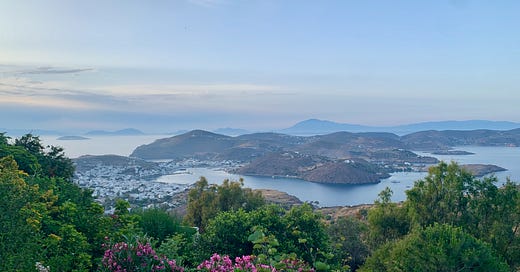




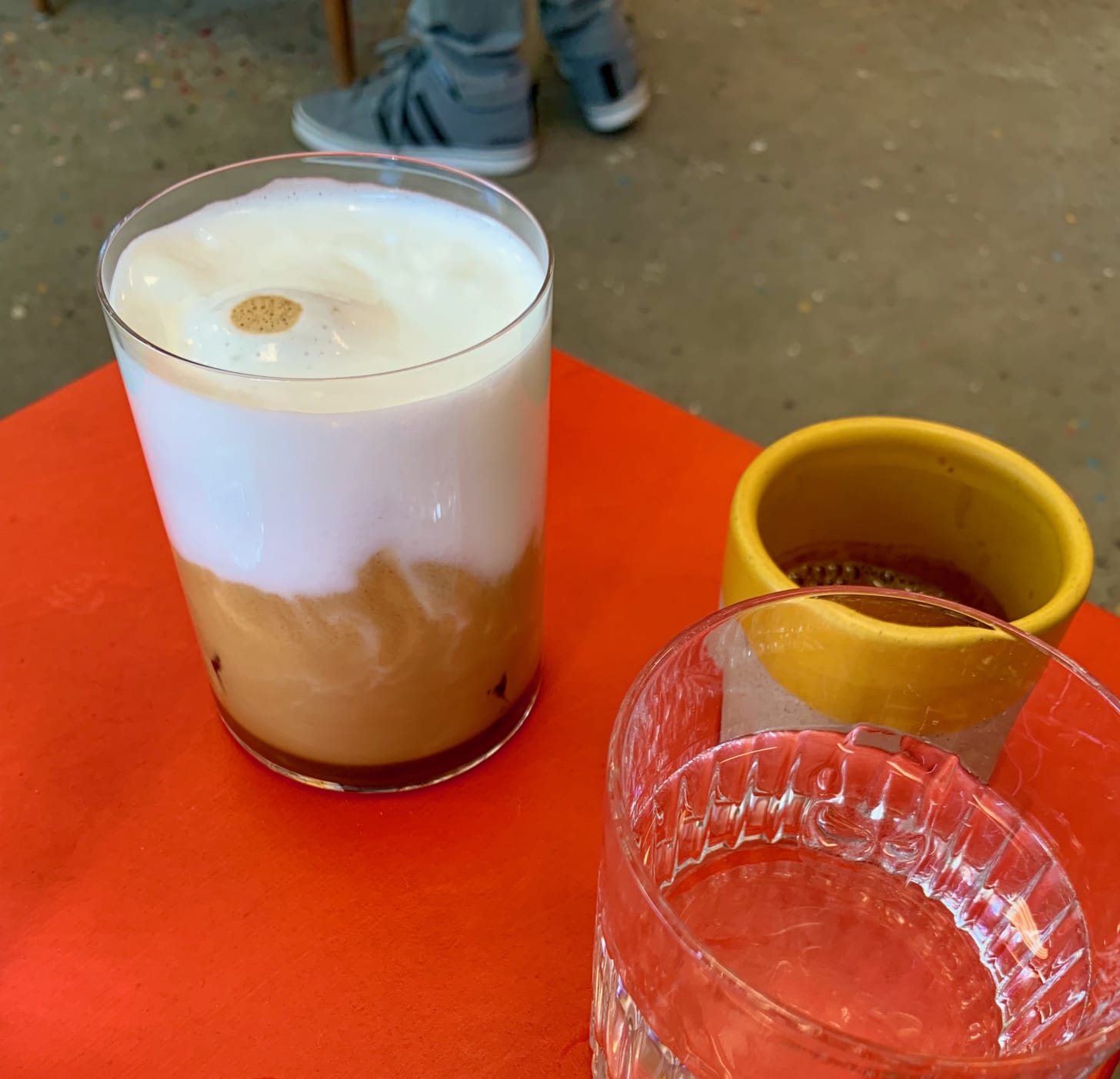



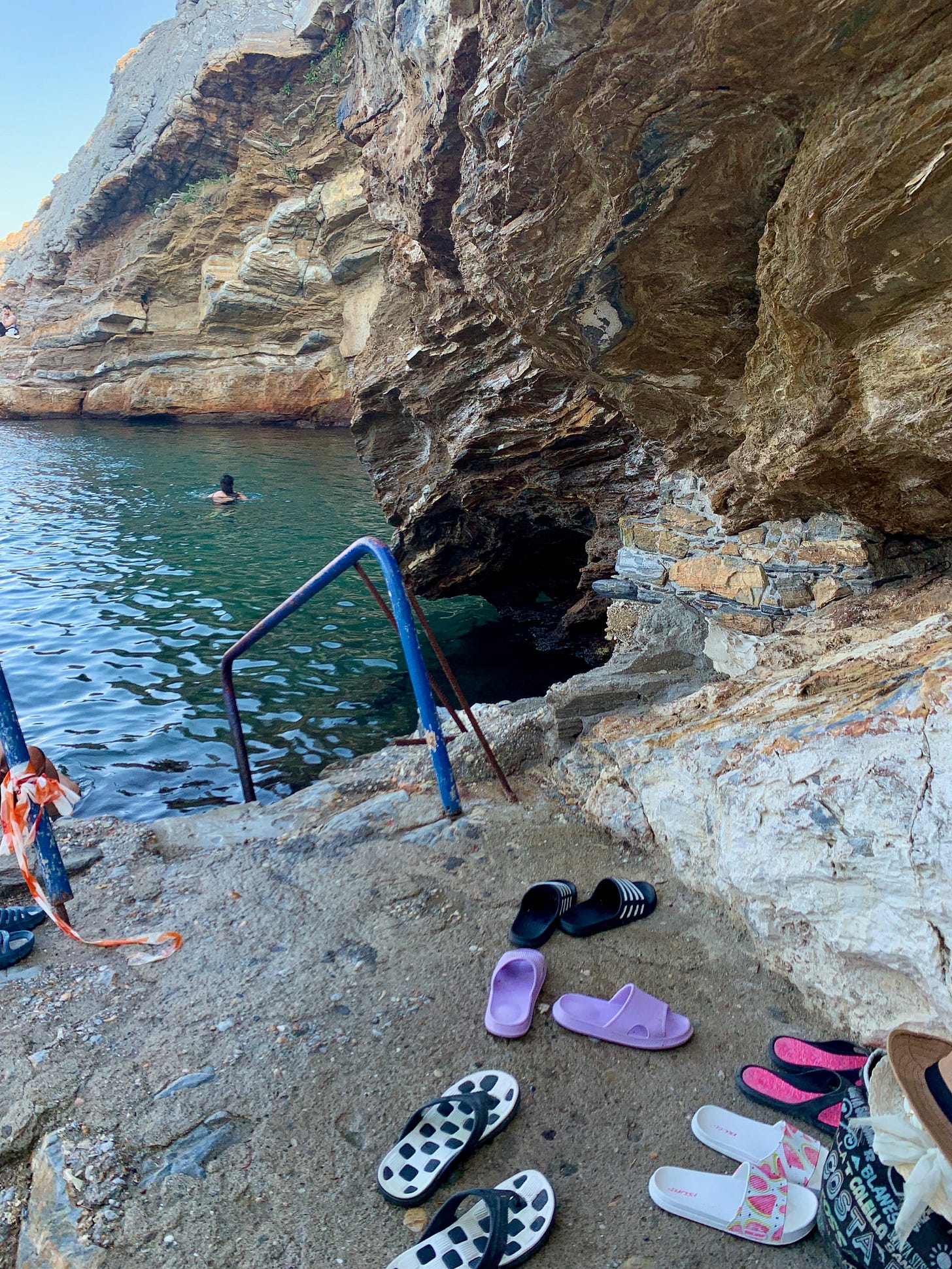

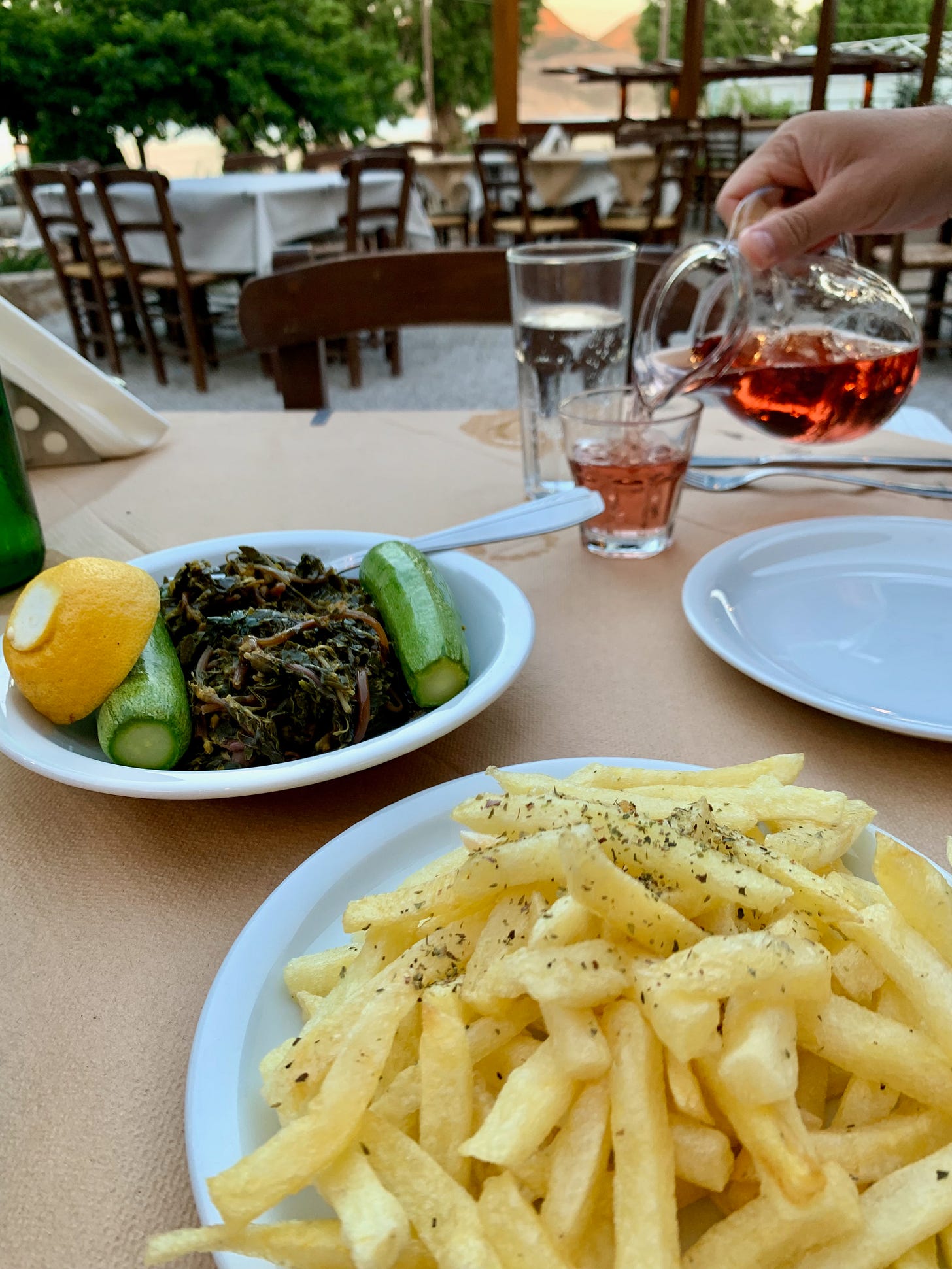

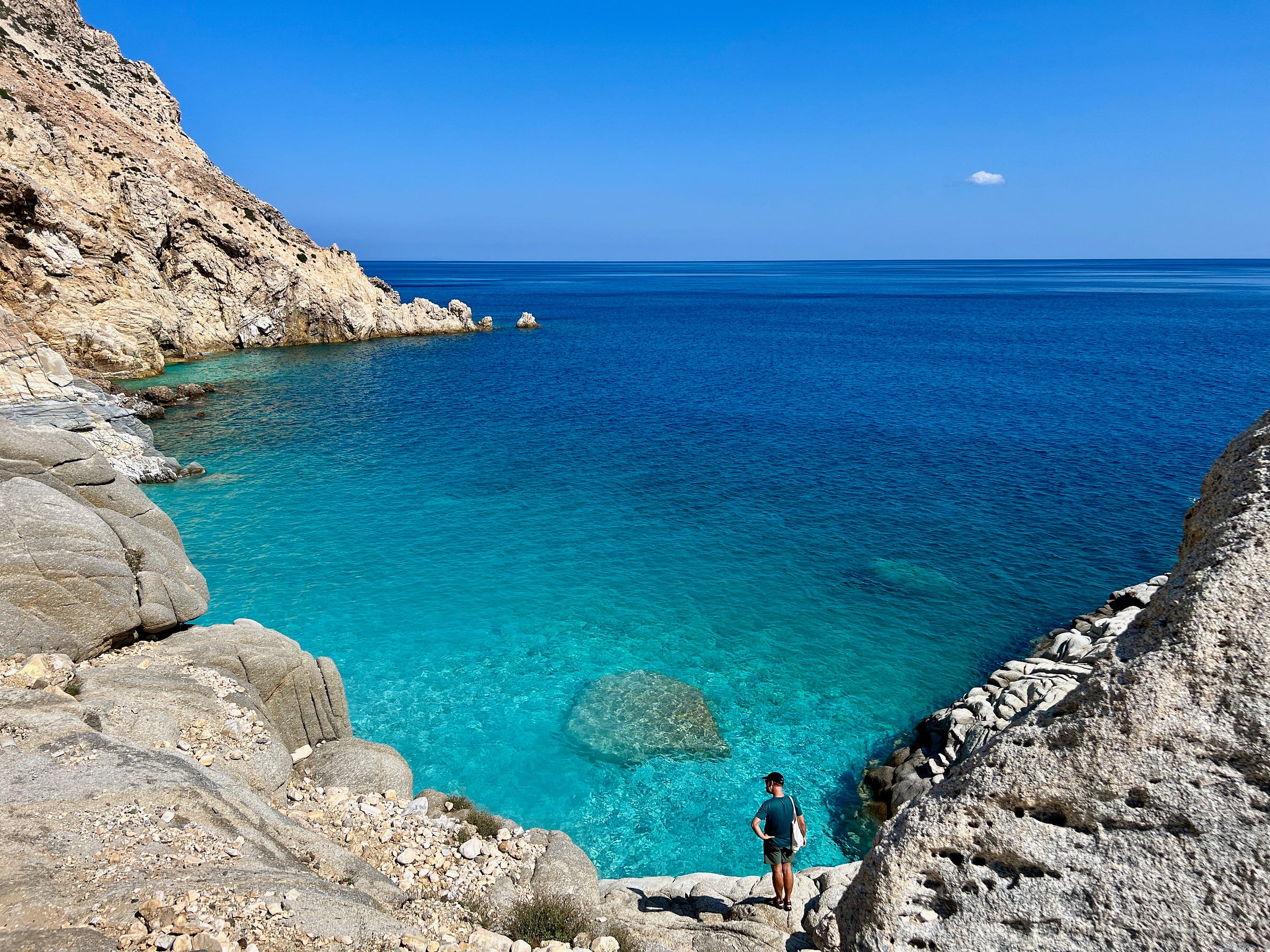

Beautiful pictures of beautiful places. Makes me want to visit Greece even more!
your most illuminating yet and leaving more delightful crumbs to decipher for oneself. love to see this unfold in your narrative style and self discovery. love it. thank you!